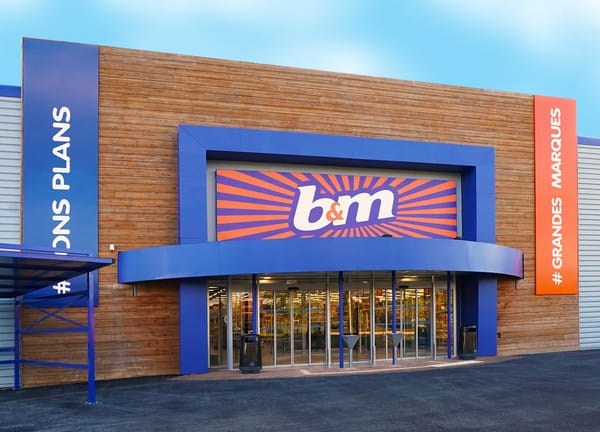Dividend notes: contrasting fortunes - DGE, RDW, TW (10/11/23)
My thoughts on this week's market-moving trading updates from Diageo, Redrow and Taylor Wimpey.

Welcome back to my dividend notes. Today I'm looking at a surprise downgrade from FTSE 100 drinks giant Diageo.
I've also taken a look at two housebuilders that are having contrasting experiences in the current market.
Companies covered:
- Diageo (LON:DGE) - the drinks group has surprised investors with a warning that half-year operating profit will be lower than expected. I feel there's still some uncertainty, so I'm staying on the sidelines.
- Redrow (LON:RDW) - the company's customers are generally affluent and often cash buyers. But they're being held back by mortgage problems for buyers lower down the housing chain. I remain positive, on a medium-term view.
- Taylor Wimpey (LON:TW.) - in contrast to Redrow, Taylor Wimpey is guiding for results at the top end of guidance after a year that has been less bad than previously expected.
These notes contain a review of my thoughts on recent results from UK dividend shares in my investable universe. In general, these are dividend shares that may appear in my screening results at some point.
As always, my comments represent my views and are provided solely for information and education purposes. They are not advice or recommendations.
Diageo (DGE)
"we now expect to see slower growth"
FTSE 100 drinks group Diageo has warned that profits will be lower than expected during the first half of its current financial year.
The news left the group as the FTSE 100's biggest faller on Friday, closing down by around 12%.
What's gone wrong? Diageo says that sales in its Latin America and Caribbean (LAC) region are expected to fall by around 20% year-on-year during the six months to 31 December.
The company says that weaker economic conditions in this region have affected spending, resulting in downtrading to cheaper brands and lower levels of consumption. In turn, this is holding back efforts to reduce stock levels.
As a result, organic operating profit for the first half of Diageo's 2023/24 financial year is expected to be lower than the same period last year. Previous guidance – just six weeks ago on 28 September – was for operating profit to rise.
LAC sales during the same period in 2022 actually rose by 20% (versus 2021), which I think was at least partly due to the football World Cup.
So to some extent, this year's slump appears to be just unwinding last year's gains. But if that's the case, I'm surprised that Diageo would not have expected this.
My view
Diageo says that "momentum is continuing" in its other regions of the world. However, the commentary seemed a little uncertain to me and the company also made further general references to increased marketing spend and cost inflation.
I'm not completely sure if the other regions of the world where Diageo operates are trading in line or perhaps slightly below. I got the impression that there was still some scope for further disappointment.
Diageo shares are now trading back at levels first seen in 2018. I might normally see this as a buying opportunity, but the uncertain tone of today's update (in my opinion) is discouraging.
Debt levels are also slightly higher than I'd really like to see – August's results showed Diageo with net debt/EBITDA ratio of 2.6x.
In my view, some of the cash that's been spent on buybacks in recent years (mostly at much higher prices) might have been more usefully directed to debt reduction.
I could be wrong – Diageo could be cheap and may bounce back quickly. But for now, I'm going to remain patient and await further news.
Redrow (RDW)
"the rate of breakdown of chains is elevated because of difficulties with mortgages lower down the chains."
I view FTSE 250 builder Redrow as one of the better-quality housebuilders, but the company's more upmarket focus appears to be causing some problems.
In its AGM trading update on Friday, the company said that while its customers are "generally financially resilient" and often cash buyers, they are frequently at the top of a home purchase chain.
According to Redrow, chains are breaking down more often than usual at the moment due to "difficulties with mortgages lower down the chains".
This has caused Redrow's cancellation rates for the year to date to rise to 25% (comparative: 22%) as its customers are struggling to sell their existing homes.
Reflecting this, management now expect the average number of sales outlets to fall to 113 this year, compared to previous guidance of 117.
As we've seen elsewhere, the scale of the slowdown is considerable. Redrow's order book is 36% smaller than at the same time last year:
"The total order book at 3 November is £864m of which 66% is exchanged, compared to £1.36bn at the same time last year with 74% exchanged."
However, prices have remained relatively firm so far, with the average private selling price slipping 2.5% to £471k so far this year, compared to £483k last year.
Outlook: Redrow stopped short of issuing a profit warning, but I think there's clearly some risk of disappointment if the housing market slows further:
"We continue to expect our results to be in the guidance range we gave in September 2023 of revenue between £1.65bn and £1.7bn and profit before tax of between £180m and £200m. However, with the lower than anticipated sales rate due to the more subdued Autumn housing market they are more likely to be towards the lower end of the range."
My view
I don't think there's too much cause for alarm. Redrow has experienced management and founder Steve Morgan remains a 17% shareholder, so I expect the firm will be carefully stewarded through this more difficult period.
My view is that with Redrow shares trading around 15% below book value, the stock probably offers value, on a cyclical or medium-term view.
The recent £100m buyback (below book value) should be supportive of book value per share, while the balance sheet is expected to remain in a net cash position at the end of the current financial year, in June 2024.
The major danger is that the housing market will freeze up more seriously. Housebuilders can cope with falling prices, but a lack of volume is much more difficult.
I don't know how likely this is, but it does seem that mortgage rates have peaked for now.
I already own shares in a housebuilder, but I think Redrow could be attractive at the moment, on a medium-term view.
For an interesting counterpoint to Redrow, see the next section below.
Taylor Wimpey (TW)
"we now expect Group operating profit to be at the top end of our guidance range of £440 million to £470 million."
This is about as close as we're getting to an upgrade in the current market. So why is Taylor Wimpey sounding so bullish when Redrow is struggling?
I suspect one reason my be Taylor Wimpey's more affordable market positioning. It's more of a volume builder with a greater exposure to first-time buyers and others at the lower end of house purchase chains.
Perhaps that means deals are easier to complete than for Redrow customers, whose home sales may depend on multiple completions further down the chain.
In contrast to Redrow, Taylor Wimpey's cancellation rate has fallen to 21% during the second half of this year, compared to 24% for the same period last year.
Taylor Wimpey's order book has also remained a little stronger, falling by 27% over the last year, compared to 36% at Redrow (above):
"As at 5 November 2023, our current total order book excluding joint ventures stood at c.£1.9 billion (2022: c.£2.6 billion) representing 7,042 homes (2022: 9,153)."
Outlook: Taylor Wimpey chief executive Jennie Daly expects to report operating profit at the top end of the group's guidance range of £440m-£470m.
Net cash at the end of calendar 2023 is expected to be between £500m and £650m, although as with most housebuilders this metric excludes land creditors, which were £588m at the end of June.
Analysts forecasts suggest that's equivalent to around 13 times forecast earnings and are pencilling a 9.4p per share dividend which seems plausible to me and would give a 7.9% yield.
My view
I don't see too much to worry about at Taylor Wimpey. Right now, the group's higher volume, lower-priced positioning appears to be working better for buyers.
The dividend has so far remained higher than at some rivals and offers a tempting yield. However, there's less asset backing than at some others, with TW shares trading within 10% of their book value of 128p.
I guess the question is whether this is as bad as it gets, or whether conditions will get tougher next year. Answers on a postcard, please...
Disclaimer: This is a personal blog/newsletter and I am not a financial adviser. All content is provided for information and educational purposes only. Nothing I say should be interpreted as investing advice or recommendations.
You should carry out your own research and make your own investing decisions. Investors who are not able to do this should seek qualified financial advice. Reasonable efforts are made to ensure that information provided is correct at the time of publication, but no guarantee is implied or provided. Information can change at any time and past articles are not updated.




